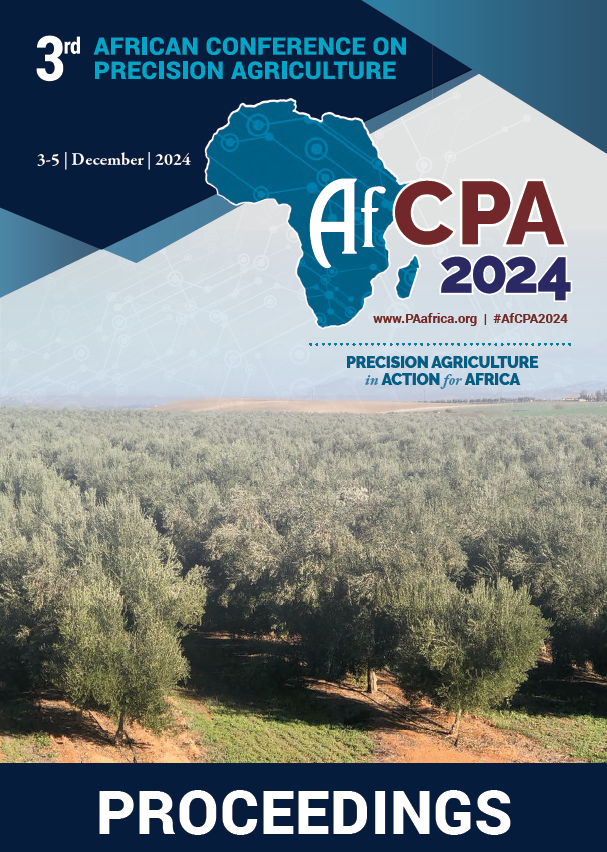Download the Conference Proceedings
Get your copy of the 2024 African Conference on Precision Agriculture Proceedings today! Download the PDF file and view all of the available proceedings.
Proceedings
Authors
| Filter results1 paper(s) found. |
|---|
1. High-Throughput Field Phenotyping of Ascochyta Blight Disease Severity in Chickpea Using Multispectral ImagingAscochyta blight (AB) caused by Ascochyta rabiei (Pass.) Labr. is an important and widespread disease of chickpea (Cicer arietinum L.) worldwide. The disease is particularly severe under cool and humid weather conditions, leading to crop losses at all stages of chickpea growth. Screening for resistant cultivars remains the most effective, economical and ecological method of disease management. However, traditional phenotyping methods that relying on trained experts are... F. Ibn el mokhtar, S. Krimibencheqroun , , A. Harkani , H. Houmairi , O. Idrissi , E. Abdellah , E. Abdellah |
